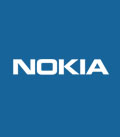Power consumption is quickly becoming one of the key issues among global industries, not only because of the rising cost of energy, but the environmental impact of uncontrolled, unmonitored and, thus, irresponsible consumption.
Many technology vendors have launched initiatives to develop more energy efficient technologies, and more than half of enterprises are already considering energy efficiency when making technology decisions. However, the fact remains that overall energy utilization is creating a challenge for power companies as they seek to meet demands, especially during peak usage periods.
Just looking at the ICT sector alone, the power consumption of network technologies predicted to double over the next ten years, unless major changes are implemented. Alcatel-Lucent's Bell Labs is looking to provide a major boost to the energy efficiency of network technology with its new Green Touch Initiative, through which it suggests ICT energy utilization can be cut by a factor of 1,000 by adopting a revolutionary approach to network technology.
But, power is a very real issue today, and the electrical power industry must look to curb energy usage in order to ensure supply can meet demand. The ICT community is in a position to play a major role in assisting the power industry in this regard, and a number of Smart Grid and other initiatives designed to enable more efficient power utilization are already underway.
Smart metering is one solution that can drive efficiency in power utilization by enabling two-way communication between consumers and suppliers, allowing utilities to define and accommodate demand patterns while driving awareness of power consumption.
To date, there has been no interaction between user and supplier, with utility companies taking readings on a monthly basis and billing based on those readings. That approach was a viable one until demand approached supply, and the costs of generating and distributing increased power became exorbitant.
The machine to machine (M2M) applications being developed today allow for a much more dynamic exchange of information between users and utilities, allowing power companies to more effectively understand usage trends and define peak patterns. The information exchange itself can be carried out by the deployment of communications devices on customer premises, but the real value will only be derived through the implementation of advanced metering infrastructures (AMI).
Of course, meter reading is a key component of an AMI solution, allowing utilities to collect data at more frequent intervals to create a real-time map of consumption against supply and innovative pricing and billing models, but additional functions provide even more opportunities for control of power supplies and for educating consumers on usage implications.
For instance, AMI solutions can also be used in an operational capacity, enabling control of electrical appliances, such as pool pumps and air conditioners, in emergency situations. Home area network messaging is another potential evolutionary capability of AIM solutions, allowing utilities to leverage communications networks to communicate information regarding usage, potential blackouts, usage reduction requests, and other scenarios to consumers.
Naturally, these additional communications capabilities do not come without consequence. Namely, they will likely place added strain on the communications network, which requires collaboration with the communications network operator.
Nevertheless, smart metering solutions provide power companies with a new, evolutionary way of monitoring and controlling power consumption in a real-time environment. Properly implemented solutions will not only create efficiencies on power grids, but can deliver financial benefits to utilities, who will have deeper insight into and control over their power networks.
For more on the how power utilities can benefit from smart metering solutions, and best practices for deploying them, read Alcatel-Lucent's white paper, Smart Choices: Establishing a Solid Foundation for an Effective, Future-Ready Smart Metering System, part of the companies wider initiative to drive energy efficiency through the ICT industry.









